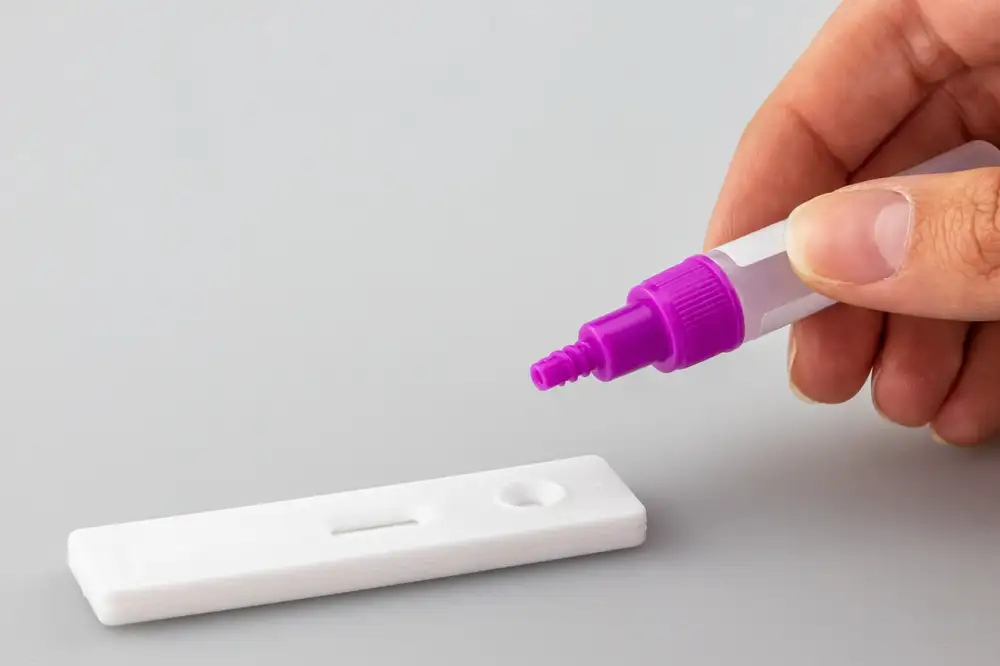Is Your Partner Cheating? Take This Test to Find Out

Sudden change in behavior
A sudden shift in your partner's behavior can be a red flag. It's not about turning into a detective, but significant changes often signal something's up.
Think about it:
Increased secrecy: Is your partner suddenly glued to their phone, hiding their screen, or being extra cautious about their online activity? These could be signs they are trying to conceal something.
Unexplained absences: More frequent late nights at work, sudden business trips, or vague excuses for being out? While there might be reasonable explanations, a pattern of these behaviors warrants attention.
Emotional distance: Has your partner become emotionally withdrawn? Do they seem distant, uninterested in intimacy, or disengaged from conversations? A sudden lack of emotional connection can be a sign of infidelity.
Changes in appearance: Did your partner suddenly revamp their wardrobe, hit the gym more often, or pay extra attention to their appearance? While self-improvement is great, these changes might be motivated by a desire to impress someone new.
Shifts in intimacy: A noticeable increase or decrease in physical intimacy can be telling. Are they suddenly less interested, or conversely, overly affectionate to compensate for their guilt?
Picking fights: Increased arguments and nitpicking can be a way for a cheating partner to create distance and justify their actions.
Remember, these changes alone don't automatically mean your partner is cheating. However, if you notice several of these signs coupled with your gut feeling, it's crucial to have an open and honest conversation with your partner. Communication is key to addressing concerns and finding a path forward, whatever that may be.
Increased secrecy and privacy
While the desire to uncover infidelity is understandable, resorting to "how to know if your partner is cheating on you" tests, especially in Spanish like "como saber si tu pareja te engaña test," often leads to increased secrecy and privacy from the partner being tested. This reaction doesn't automatically signify guilt. Instead, it's a natural defense mechanism when someone feels their trust is being violated.
Imagine this: you find your partner scrolling through your phone, reading your personal messages. Even if you have nothing to hide, wouldn't you feel your privacy invaded? You might become more guarded, even secretive, about your phone usage in the future, not because you're hiding infidelity, but because your trust has been broken.
The same principle applies to these infidelity tests. They breed suspicion and doubt, creating a rift in the relationship. Your partner, sensing this lack of trust, might increase their privacy settings on social media, be more cautious about their phone usage around you, or become less open about their day-to-day activities. This behavior, while potentially misinterpreted as guilt, could simply be a reaction to feeling watched and distrusted.

Remember, a healthy relationship thrives on open communication and mutual respect. Instead of resorting to secretive tests, fostering a safe space for honest conversations is crucial. If you suspect infidelity, directly addressing your concerns with your partner, albeit difficult, is more likely to lead to a resolution than resorting to suspicion and secrecy.
Unexplained absences, excuses
Unexplained absences are a major red flag in any relationship. If your partner suddenly has new commitments that keep them away from you without a good explanation, it's natural to feel suspicious. Maybe they're working late more often, going out with "friends" you've never met, or taking mysterious weekend trips. Pay attention to inconsistencies in their stories and whether their excuses hold up under scrutiny.
Excuses can be another telltale sign. Cheaters often become masters of fabrication, spinning elaborate lies to cover their tracks. Notice if your partner is constantly making excuses for their behavior or if their explanations seem flimsy and rehearsed. Do they get defensive or angry when you ask simple questions about their whereabouts? While it's important not to jump to conclusions, a pattern of weak excuses coupled with other suspicious behavior warrants further investigation and an open conversation with your partner.
Newfound interest in appearance
A sudden surge of interest in their appearance can be a red flag. If your partner has never cared much about their looks and suddenly starts hitting the gym, obsessing over their clothes, or spending hours getting ready, it might be a sign they're trying to impress someone new. Of course, this alone doesn't mean they're cheating. Maybe they just had a wake-up call or want to feel good about themselves. But, coupled with other changes in behavior, it's something to pay attention to.
Think about it: if someone is happy and content in their relationship, they're less likely to seek validation elsewhere. A sudden shift towards vanity could indicate a desire to be noticed, admired, or even desired by someone other than their partner. This is especially true if they seem less interested in your opinion on their new look.
Decreased intimacy and affection
A significant drop in intimacy and affection can be a red flag. This doesn't just mean a decrease in physical intimacy, like sex. It also includes less cuddling, kissing, hand-holding, or even just compliments and words of affirmation.
Think about it: when you're excited about someone, you want to be close to them. If your partner seems distant, uninterested, or is constantly finding excuses to avoid physical touch, it could be a sign that their feelings have changed or that they are getting that affection from someone else.

Pay attention to how your partner interacts with you. Has there been a shift in their behavior? Do they seem distant or withdrawn? Do they avoid eye contact or seem uncomfortable when you try to be affectionate? These could be subtle signs that something is amiss.
It's crucial to remember that a decrease in intimacy alone doesn't automatically equal infidelity. Stress, health issues, and other life challenges can also affect your partner's libido and desire for affection. However, if you notice this change alongside other red flags, it's essential to have an open and honest conversation with your partner about your concerns.
Trust is like a mirror, once broken, you can try to put the pieces back together, but you'll always see the cracks.
Anya Chernykh
Suspicious phone or online activity
Gut feeling, intuitionWhile quizzes and articles can be helpful, sometimes the most powerful tool in detecting infidelity is your own intuition. That nagging feeling in your gut, that unease you can't quite shake off - it's often your subconscious picking up on subtle cues and shifts in your partner's behavior.
Maybe they're suddenly glued to their phone, being unusually secretive, or their explanations just don't add up. Perhaps their demeanor has changed, they're more distant or irritable, or showering you with unexpected gifts. These could be red flags, but remember, intuition isn't foolproof.
It's crucial to differentiate between suspicion rooted in insecurity and genuine gut feelings. Are you generally an anxious person, or have there been past betrayals that make you question trust easily? If so, those feelings might stem from personal baggage rather than your partner's actions.
However, if your gut feeling is persistent and accompanied by tangible changes in your partner's behavior, it's essential to acknowledge it. Don't ignore your intuition. Instead, use it as a starting point for open and honest communication with your partner.
Published: 23. 06. 2024
Category: Food



